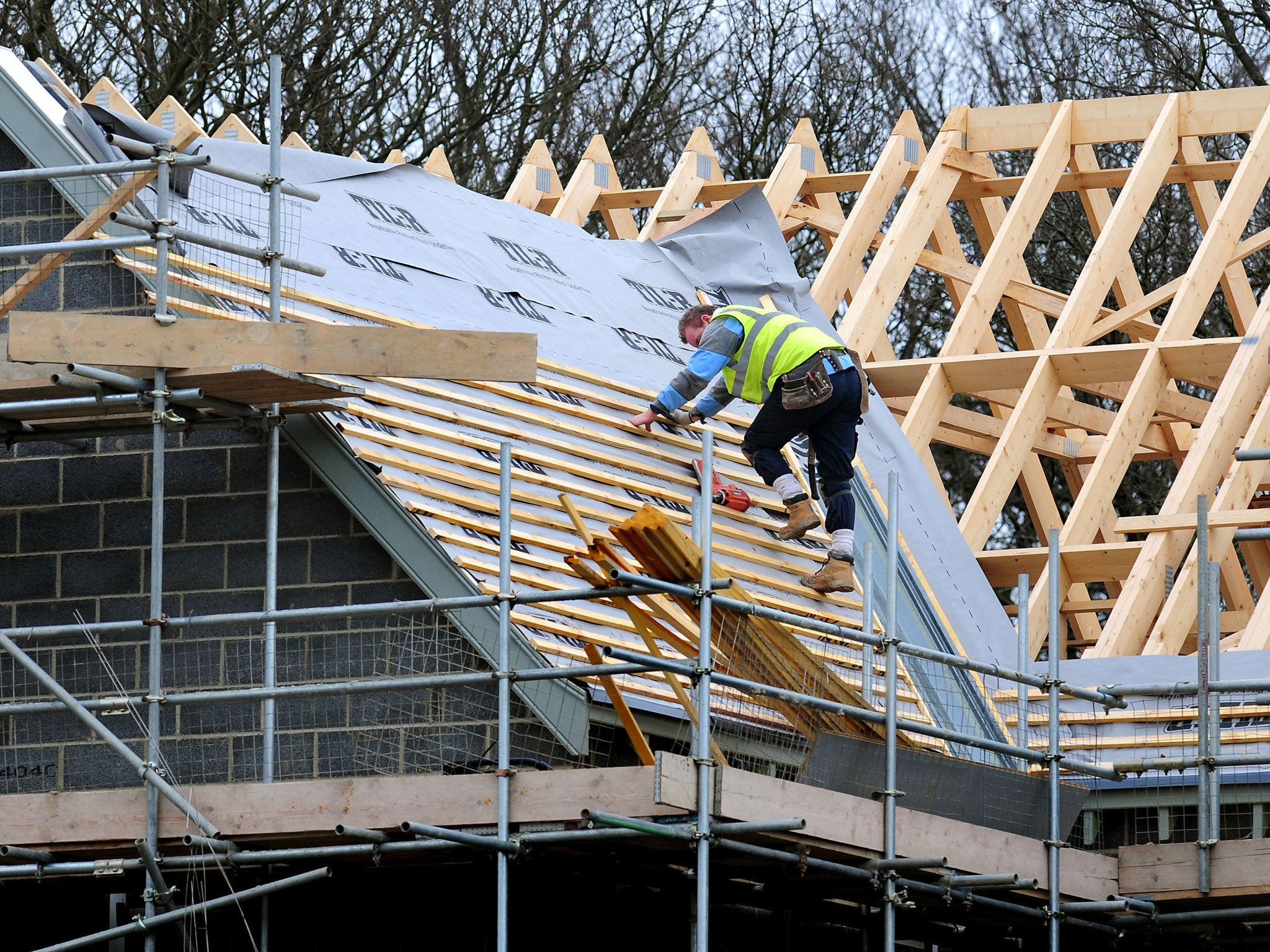'Disaster' as UK house-building rate falls away
Less than half the amount of new houses needed to meet demand were built in the last year

The number of affordable houses and flats built in England fell sharply last year, highlighting the pressures facing first-time homebuyers, Government figures released today have disclosed.
Just 107,950 homes were constructed in 2012-13, well short of the 250,000 to 300,000 extra properties that experts believe are required every year to keep pace with growing demand.
David Cameron has championed his “help to buy” scheme, under which the taxpayer guarantees up to 15 per cent of mortgages, as a way of tackling the national housing crisis.
Almost 5,400 homes have been bought in the first six months of the initiative, 92 per cent of which went to first-time buyers, the Department for Communities and Local Government (DCLG) said.
But the extent of national housing shortages was underlined by separate DCLG statistics showing a second yearly fall in the number of new affordable homes provided in 2012-13.
The total fell from 58,100 in 2011-12 to 42,830 in 2012-13, a drop of 26 per cent and the lowest number for eight years. They included 39,400 newly-built homes, a drop of 25 per cent on the previous year.
Campbell Robb, the chief executive of the housing charity Shelter, said the decline “spells disaster for the thousands of families we see every day who are struggling to cope with soaring housing costs”.
He added: “In the 1960s we frequently built up to 400,000 new homes a year, and there is no reason why we can’t see this scale of house building again.
“But unless we see decisive action from the government to build more affordable homes, more people across the country will find themselves priced out of a stable home.”
Almost 17,600 social rented homes were supplied in 2012-13, which the DCLG acknowledged was a “significant decrease” from the 37,680 delivered in the previous 12 months.
The decline was partially offset by new-builds, but overall the number of new affordable rented properties tumbled by more than one-third.
Emma Reynolds, the shadow housing minister, said the fall in affordable properties was further evidence of Government failure to “act on the cost-of-living crisis”.
She said: “David Cameron is presiding over the lowest levels of house building in peacetime since the 1920s. Home ownership remains out of reach of low and middle-income earners, rents are rising faster than wages and waiting lists grow ever longer.”
But Kris Hopkins, the housing minister, said that in the last three months house-building had reached its highest levels since the financial crash of 2008.
He said the housing market inherited by the Coalition in 2010 was a “smoking ruin”, but the Government’s policies were returning it to health.
The House Builders Federation yesterday said the help to buy scheme was boosting demand for new homes.
Its executive chairman, Stewart Baseley, executive chairman, said: “People’s inability to buy in recent years has been the biggest constraint on the industry’s efforts to build more homes.
“If people can buy, builders will build. Help to buy is allowing people who can afford to buy a home to do so, meaning builders can get on with building the homes the country needs.”
Join our commenting forum
Join thought-provoking conversations, follow other Independent readers and see their replies
Comments
Bookmark popover
Removed from bookmarks